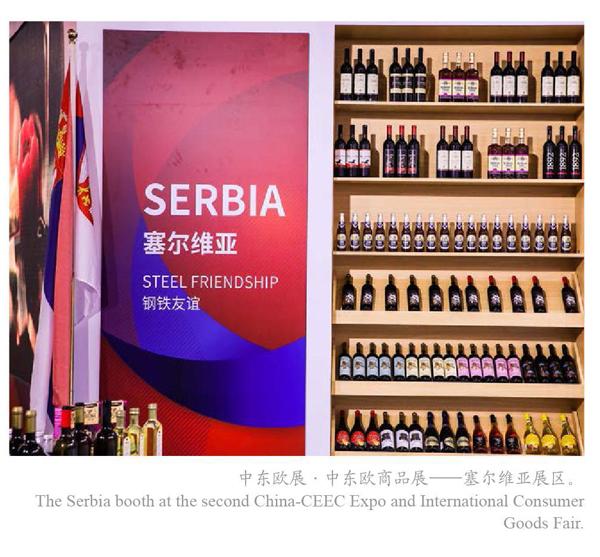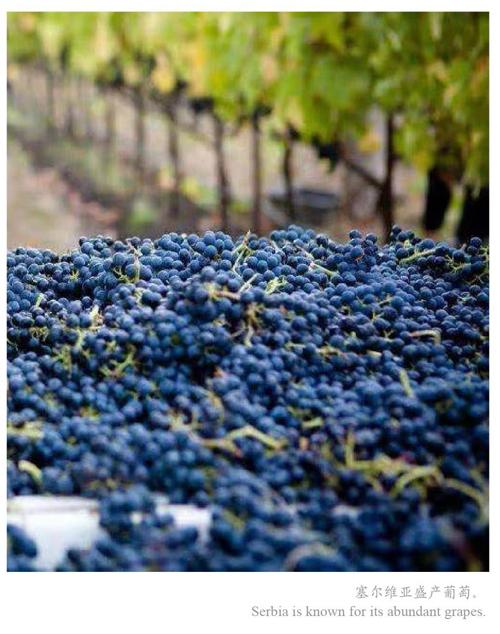月月上熱搜


“中國與塞爾維亞簽署駕駛證互認換領協議。根據協議,中國與塞爾維亞雙方承認對方核發的有效駕駛證。”今年5月27日上午,在貝爾格萊德,塞爾維亞中國智慧文旅促進會秘書長、塞爾維亞瀧鼎升文旅集團副總經理步小勇,看著手機里彈出的這條推送,下意識地打開了新浪微博……
“這條新聞,最高沖到了熱搜第三!”步小勇欣慰地說。作為在塞爾維亞的華僑,近年來他看到了“一帶一路”給塞爾維亞帶來的變化,尤其這兩年來,甚至習慣了“每個月都能看到塞爾維亞上中國熱搜”。
這是中國政府首次與中東歐國家簽署此類協議,協議生效后,將進一步便利雙方公民在對方國家工作生活,提高兩國經貿合作和人文交往水平,有力服務共建“一帶一路”。
對他而言,這不過是“兩個老鐵間很小的一個福利”。事實上,兩國越來越緊密的關系,早已改變了他的人生規劃。
“我是2003年到塞爾維亞的,這之后的人生分兩個階段,2016年之前做生意,2017年之后做導游,契機就是2017年塞爾維亞對中國免簽!”步小勇說,在2017年之前,塞爾維亞基本不存在對華旅游業一說。當時,他們的最大客源來自西歐。每到夏天,西歐客人就會來到這個歐洲“后花園”,享受陽光美食和音樂,以及獨特的歷史人文。而中國客人,大多以西歐、北歐作為旅游目的地。但開放免簽后,中國一下子成為塞爾維亞旅游市場的生力軍。到2019年,中國就一躍成為塞爾維亞的第一旅游客源國。
“正因如此,塞爾維亞從官方到民間,高度重視中國市場。西歐作為主要客源地,增量有限,但中國市場很有潛力,接下來很可能開通直航,甚至推動更全面的互惠合作!”視頻采訪中,步小勇指著身后一幢美麗的白色大樓說,這是貝爾格萊德中國文化中心大廈,前身是中國駐南聯盟大使館。
此刻,戰火早已遠去,城市洗凈滄桑,鮮花遍地怒放。
在中國旅行社集團寧波有限公司歐美澳非負責人劉玲的眼中,步小勇還有個身份——寧波團的塞爾維亞地接。
“以前我們寧波團去塞爾維亞,基本上是塞爾維亞、波黑、黑山三國游13天。中國沒有直飛,需要從俄羅斯轉機,由于免簽,這塊業務增長很快。雖然因為疫情,暫時耽擱了下來。”劉玲說,現在塞爾維亞也正在全面接種中國疫苗,相信未來隨著全球疫情的逐步好轉,這塊市場會得到迅速復蘇。“下一步,我們會開放塞爾維亞一國游的項目,并且結合駕照互認,設計半自由行半自駕的項目,讓大家更為深入地探訪巴爾干半島美景。”
“塞爾維亞,我去過很多次啊!”對于這一新聞,寧波市中東歐經貿合作與文化交流促進會會長董麗君的第一反應是,這將進一步促進雙方經貿合作。“比如,在我們促進會中,有會員在塞爾維亞投資了汽車零配件廠,產品直接出口到歐洲整車廠。現在塞爾維亞人、旅居華人、僑領在寧波工作的非常多。過去幾年,在他們的帶動下,寧波商人到塞爾維亞的商務考察也逐漸常態化。”董麗君笑道,互認駕照以后,寧波人過去開個公司,直接用中國的駕駛證自駕考察,還可以帶動一些旅游項目。
董麗君介紹,由于塞爾維亞是農業大國,對方希望有寧波企業前往投資開發農產品深加工產業,進而利用寧波港口資源優勢,以及博覽會、經貿合作示范區等國家級平臺推動對華出口。
“現在,這項工作已經不斷向前推進,比如塞爾維亞的特色水果酒、干果、不老莓汁、紅酒,寧波的進口企業都有代理。”董麗君說。
去年,寧波與塞爾維亞的雙邊貿易額為5.32億元,同比增長29.3%。今年1至2月,寧波對塞爾維亞實現進出口1.56億元,同比增長185%,其中進口增長61.7%。
Trendy in China Every Month
“China and Serbia signed an agreement allowing mutual recognition and exchanges of the two country's driving licenses. Under the new deal, people with driving licenses from one side can drive or apply for new licenses without taking tests in the other country.” Reading the news alert on his phone, Bu Xiaoyong, secretary general of Serbia-China Smart Culture and Tourism Association, automatically opened the Sina Weibo app, the Chinese microblogging service platform, on his phone.
“It is in the third place on Weibos trendy topics list!” Bu said. As a Chinese expatriate living in Serbia, he has personally witnessed the changes brought about by the Belt and Road Imitative. In the past few years, Bu has been used to “Serbia on Weibos trendy topics list every single month”.
This is the first time that the Chinese government has signed such an agreement with a country from Central and Eastern Europe. Once into effect, it will make it easier for citizens of both sides to work and live in another country, enhance economic and trade cooperation and people-to-people exchanges, and provide strong support to the construction of the Belt and Road.
To Bu Xiaoyong, it was “just a small perk between two countries counting each other among their closest friends”. In fact, growing ties between them have already changed his life plans.
“I came to Serbia in 2003. After that, my life has been divided into two stages,” Bu recalled, “Doing business before 2016, and then working as a tour guide after 2017, when Serbia exempted visa to Chinese citizens.” Before 2017, there was no such thing as the China market in Serbian tourism, said Bu. At the time, the vast majority of tourists came from Western Europe, who came to this European “back garden” every summer to enjoy sunshine, food, music and its unique history and culture. Chinese tourists, on the contrary, flocked to Western Europe and Northern Europe.
Thanks to the visa-free policy, China suddenly became a new force in Serbias tourism market. By 2019, China became the number one source of tourists to Serbia.
“For this reason, from authorities to the general public, Serbia attaches great importance to the Chinese market, which has great potential in the future,” Bu said. “Next, direct flights are likely to be opened, and more comprehensive cooperation is expected!” In the video interview, Bu Xiaoyong pointed to a beautiful white building behind him: the Chinese Cultural Center in Belgrade, which used to house the Chinese Embassy in former Yugoslavia.
“In the past, as no direct flights were available, our Ningbo clients usually went to Serbia, Bosnia and Herzegovina and Montenegro for 13 days,” said Liu Ling, a Ningbo-based travel agent in regular contact with Bu Xiaoyong, “Now, there is a growing demand to travel to Serbia because of its visa-free policy, despite disruptions by the COVID-19, and we are planning to offer Serbia-only services to tourists, so that they can fully enjoy the Balkan beauty.”
In 2020, bilateral trade between Ningbo and Serbia reached 532 million yuan, up 29.3 percent year-on-year. In January and February 2021, Ningbos import and export to Serbia climbed to 156 million yuan, a 185% year-on-year increase, of which import increased by 61.7%.

